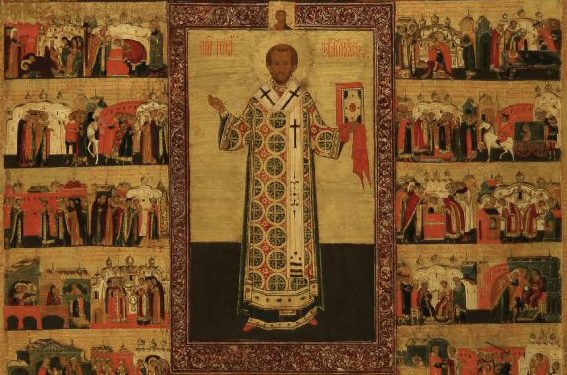In the tapestry of Christian history, certain figures shine like beacons, illuminating the path to virtue and wisdom. St. John Chrysostom, hailed as a Church Father, stands tall among these luminaries. His life embodies virtues that continue to guide believers towards a life of humility and wisdom. What lessons we can draw from his example and how can these virtues remain as relevant as ever in our modern lives?
Born in Antioch in 349 AD, St. John Chrysostom's life was marked by a deep commitment to his faith and a profound understanding of the human condition. His eloquent teachings earned him the title "Chrysostom," which means "golden-mouthed." He spoke boldly against social injustices, emphasizing the importance of humility and wisdom as the cornerstones of a virtuous life. Despite his prestigious position as Archbishop of Constantinople, he remained a humble advocate for the marginalized, demonstrating that true wisdom is accompanied by empathy and compassion.
The Virtue of Humility in St. John Chrysostom's Life
St. John Chrysostom's life was marked by a profound humility that echoes through the ages. He believed that true greatness lay not in exalting oneself, but in lowering oneself to serve others. His acts of humility were not grand gestures for public acclaim; they were the gentle choices he made daily. Whether interacting with the poor, sharing his possessions, or shunning worldly honors, Chrysostom exemplified humility in its purest form.
The Wisdom of St. John Chrysostom
Wisdom flowed from Chrysostom's lips like a river, nourishing the souls of those who listened. His homilies and writings reveal a deep well of understanding that emanated from his intimate connection with God and the Scriptures. Chrysostom's wisdom was not just intellectual prowess; it was a living, breathing force that guided his actions and decisions. "Chrysostomos," meaning "Golden-Mouthed”, accurately described his ability to address complex theological and moral matters with clarity and insight.
Incorporating Humility and Wisdom into Modern Life
In our fast-paced world, St. John Chrysostom's virtues offer a compass to navigate the complexities of life. Embracing humility means recognizing the value of every individual, treating others with kindness, and embracing a life of service. By imitating his humble approach, we can create connections that transcend social divides.
Wisdom, as Chrysostom demonstrated, isn't confined to academic knowledge. It involves discernment, insight, and the ability to make decisions that align with our values. Engaging in continuous learning, seeking advice from trusted mentors, and pausing to reflect before making choices are all ways to embody the wisdom that Chrysostom espoused.
Embracing St. John Chrysostom's Virtues for Personal Growth
St. John Chrysostom's virtues are not confined to grand stages; they find their home in everyday lives. Let's explore how individuals from different walks of life can embody his virtues of humility and wisdom:
Parenting with Humility and Wisdom: Picture a parent who approaches their child with a heart willing to learn alongside them. Instead of asserting authority, they admit when they're wrong, showing that growth is a shared journey. This humility bridges the generational gap, fostering open communication and trust. Such parents offer their wisdom as a guide, not a decree, allowing their children to flourish while instilling values that will serve them well.
The Tapestry of Friendship: Friends who practice humility and wisdom strengthen the bonds of companionship. Consider two friends navigating differing viewpoints with respect and curiosity. Rather than imposing their beliefs, they engage in thoughtful conversations, drawing from the well of Chrysostom's wisdom. Their humility allows them to listen and learn, fostering an enduring friendship that weathers life's storms.
In Marriage, Humility and Wisdom: A marriage built on humility and wisdom flourishes in mutual understanding and growth. Partners approach challenges not as opponents, but as a team. Humility enables them to apologize sincerely and forgive generously, ensuring their love deepens over time. Wisdom guides them in decisions that honor their commitment and uphold shared values.
Workplace Leadership: Imagine a leader who acknowledges their team's collective intelligence, consulting them before making decisions. By seeking input, they demonstrate humility, recognizing that the best solutions are often born from collaboration. Their wisdom lies not in having all the answers, but in fostering an environment where diverse perspectives harmonize towards success.
Community Builders: In neighborhoods and communities, humility and wisdom create bonds that transcend differences. Individuals who engage with their neighbors and listen to their stories create spaces of belonging. By sharing wisdom gleaned from life experiences, they uplift and inspire, nurturing a sense of unity.
Reflection on St. John Chrysostom's Legacy
St. John Chrysostom's legacy endures because his virtues are universal and timeless. In an era marked by ego-driven pursuits, his humility serves as a powerful antidote. In a world drowning in information, his wisdom guides us towards the truths that truly matter.
As we journey through our days, let us remember his example and draw from the wellspring of humility and wisdom he left behind. By emulating his life, we can walk a path that leads to a deeper connection with others, a richer understanding of truth, and a life truly aligned with the heart of Christ.


![St. John Chrysostom Medal [EN6485]](https://b960748.smushcdn.com/960748/wp-content/uploads/2023/08/EN6485-St-John-Chrysostom-Medal-600x600-1.jpg?lossy=1&strip=1&webp=1)
![Smooth Bangle Bracelet with a Saint John Chrysostom Charm [BRS9357]](https://b960748.smushcdn.com/960748/wp-content/uploads/2023/08/BRS9357-Bracelet-Saint-John-Chrysostom-Charm-600x600-1.jpg?lossy=1&strip=1&webp=1)
![Badge with St. John Chrysostom Charm and Badge Pin with Cross [BLBP2281]](https://b960748.smushcdn.com/960748/wp-content/uploads/2023/08/BLBP2281-Pin_John_Chrysostom-600x600-1.jpg?lossy=1&strip=1&webp=1)